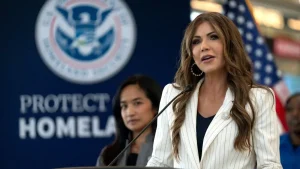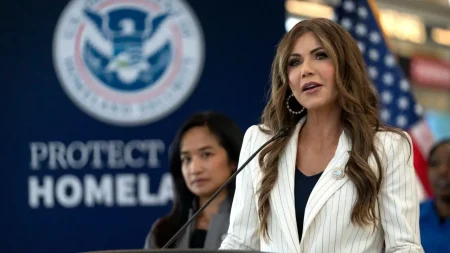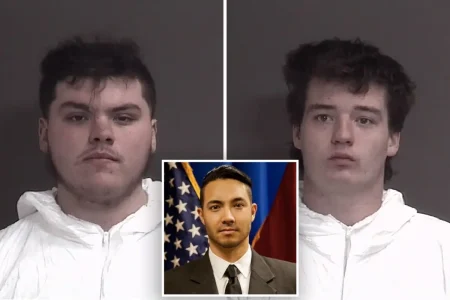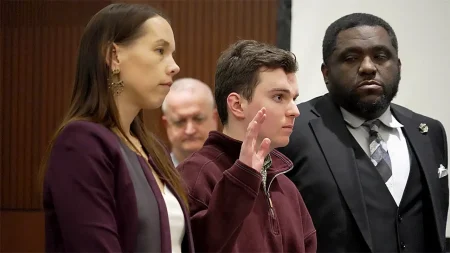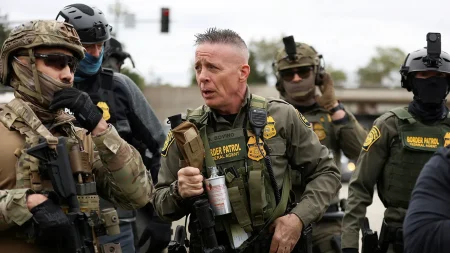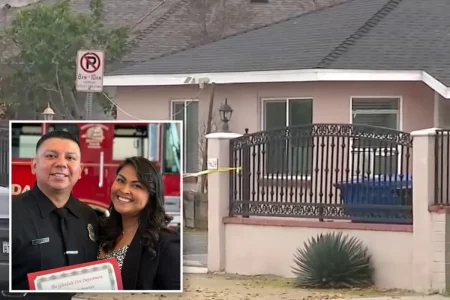US Signals Stronger Stance Against Drug Cartels as Rubio Meets with Ecuador’s President
In a significant policy declaration that signals a hardening of the United States’ approach to transnational criminal organizations, Secretary of State Marco Rubio announced that the Trump administration intends to intensify its campaign against drug cartels operating throughout the Americas. The statement came during Rubio’s high-profile diplomatic visit to Ecuador, where he met with President Daniel Noboa to discuss regional security concerns and bilateral cooperation efforts aimed at combating narcotrafficking networks that have increasingly destabilized parts of Latin America.
“The violent stranglehold that cartels maintain over communities across this hemisphere demands a more decisive response,” Rubio declared during a joint press conference at Carondelet Palace in Quito. “President Trump has authorized a comprehensive strategy that will include more aggressive interdiction efforts, enhanced intelligence sharing, and when necessary, direct action against these criminal enterprises that poison our streets and undermine democratic institutions.” The Secretary’s remarks represent one of the clearest articulations yet of the administration’s evolving security doctrine toward Latin America, which appears to prioritize dismantling cartel operations through expanded military and law enforcement operations.
Ecuador’s Security Crisis Highlights Regional Concerns
Ecuador’s recent experience with cartel violence has made it an important case study for regional security experts. Once considered one of Latin America’s more peaceful nations, Ecuador has witnessed an alarming surge in drug-related violence over the past several years, with homicide rates tripling in some regions and prison riots claiming hundreds of lives. President Noboa, who narrowly survived an assassination attempt earlier this year that authorities linked to cartel elements, has declared a state of internal armed conflict against criminal organizations operating within Ecuador’s borders.
“What we’re witnessing in Ecuador is unfortunately not unique,” Rubio explained during his address. “From Mexico to Colombia, from the Northern Triangle to Brazil, these criminal networks exploit institutional weaknesses, corrupt officials, and terrorize civilian populations. They represent a direct threat not only to regional stability but to U.S. national security.” The Secretary pointed to intelligence reports suggesting that cartels have developed increasingly sophisticated operations, utilizing technologies ranging from encrypted communications to drone warfare, while establishing deeper connections with international terrorist organizations and hostile state actors seeking to undermine American interests in the Western Hemisphere.
New Strategy Emphasizes Coordinated Military Action
The administration’s evolving approach appears to mark a significant departure from previous policies that primarily emphasized interdiction, economic development, and institutional capacity building. While those elements remain part of the strategy, officials speaking on background indicated that the White House has authorized expanded authorities for direct military and intelligence operations against cartel leadership and infrastructure. These may include targeted operations by special forces units, increased deployment of surveillance assets, and greater coordination with partner nations’ security forces.
International security analyst Dr. Elena Vasquez of Georgetown University’s Center for Security Studies noted that this represents a significant policy shift. “What we’re hearing from Secretary Rubio suggests the administration is moving toward treating certain cartel structures more like terrorist organizations than traditional criminal enterprises,” Vasquez explained in an interview. “This could potentially include more kinetic operations similar to those previously reserved for groups like Al-Qaeda or ISIS. The question becomes whether such an approach can succeed without addressing underlying issues of corruption, poverty, and institutional weakness that allow these organizations to flourish in the first place.” Other experts have raised concerns about potential human rights implications and the risk of escalating violence in regions already suffering from extreme insecurity.
Economic and Diplomatic Measures Complement Security Operations
While the Secretary’s remarks emphasized security operations, the administration’s approach appears multi-faceted. Following the press conference, U.S. officials announced a $1.2 billion security assistance package for Ecuador that includes not only military equipment and training but also judicial reform initiatives, anti-corruption programs, and economic development projects targeted at vulnerable communities where cartels recruit. “Military action alone cannot solve this crisis,” Rubio acknowledged. “We must simultaneously strengthen democratic institutions, create economic opportunities, and address the demand for illegal drugs that fuels these criminal enterprises.”
The diplomatic engagement with Ecuador represents part of a broader regional effort, with similar dialogues occurring with Colombia, Mexico, Guatemala, and other nations affected by cartel violence. Sources within the State Department indicated that the administration is working to establish a new multinational intelligence fusion center, likely based in Panama, that would coordinate anti-cartel operations across national boundaries and facilitate more seamless information sharing. This initiative comes as China has expanded its influence throughout Latin America, with Beijing offering its own security assistance packages that American officials view with concern. “This is not just about fighting crime,” a senior administration official said on condition of anonymity. “It’s about demonstrating American leadership and commitment to our hemisphere at a time when strategic competitors are attempting to fill any vacuum we might leave.”
Domestic Implications and Congressional Response
The administration’s hardened stance on cartels aligns with President Trump’s broader messaging on border security and immigration, issues that featured prominently in his successful campaign. During his first term, Trump had publicly contemplated designating certain Mexican cartels as foreign terrorist organizations, a move that would have expanded legal authorities for military operations but was ultimately shelved after diplomatic pushback from Mexico. Indications suggest the administration may revive this consideration while navigating the complex diplomatic and legal implications.
Congressional reaction has been mixed along generally partisan lines. Senator James Lankford, who chairs the Senate Homeland Security Committee, expressed strong support for the initiative. “These cartels are responsible for the fentanyl crisis claiming thousands of American lives annually. They operate sophisticated human trafficking networks and effectively control territory within countries just beyond our borders. Treating this as anything less than a direct national security threat would be negligent,” Lankford stated following Rubio’s announcement. However, Representative Veronica Escobar, whose district includes El Paso, Texas, urged caution. “We’ve seen decades of aggressive approaches that have failed to significantly reduce cartel power or drug flows. What we need is comprehensive immigration reform, more legal pathways for migration, and addressing root causes of instability—not simply more militarization,” she countered in a statement released by her office. As the administration moves forward with implementing its strategy, these domestic political dynamics will likely shape both the resources available and the constraints placed on operations against transnational criminal organizations that continue to challenge security across the Americas.


